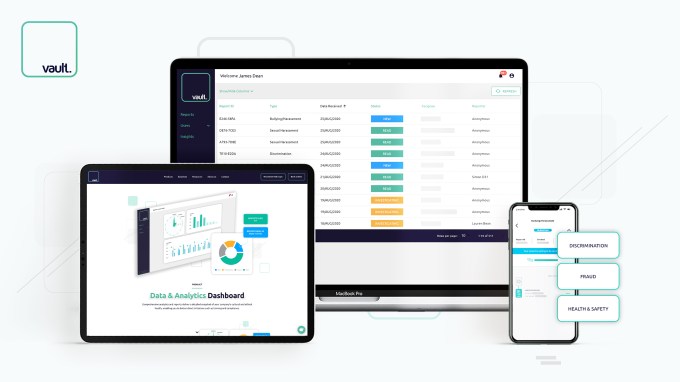France’s competition watchdog, L’Autorité de la concurrence, has fined Google up to €220 million (~$268M) in a case related to self-preferencing within the adtech market which the watchdog found constituted an abuse by Google of a dominant position for ad servers for website publishers and mobile apps.
L’Autorité began looking into Google’s adtech business following complaints from a number of French publishers.
Today it said Google had requested a settlement — and is “not disputing the facts of the case” — with the tech giant proposing certain ‘interoperability’ commitments that the regulator has accepted, and which will form a binding part of the decision.
The watchdog called the action a world first in probing Google’s complex algorithmic ad auctions.
Commenting in a statement, L’Autorité’s president, Isabelle de Silva, said: “The decision sanctioning Google has a very special meaning because it is the first decision in the world to look into complex algorithmic processes. Auctions through which online display advertising works. The investigation, carried out particularly quickly, revealed the processes by which Google, relying on its considerable dominant position on ad servers for sites and applications, was favored over its competitors on both ad servers and SSP platforms. These very serious practices penalized competition in the emerging online advertising market, and have enabled Google not only to preserve but also to increase its dominant position. This sanction and these commitments will make it possible to restore a level playing field for all players, and the ability of publishers to make the most of their advertising space. ”
At specific issue is preferential treatment Google granted to its own proprietary technologies — offered under the Google Ad Manager brand — on both the demand and supply sides; via the operation of its DFP [DoubleClick For Publishers] ad server (which allows publishers of sites and applications to sell their spaces advertising), and its sales platform SSP AdX (which organizes the auction process allowing publishers to sell their ‘impressions’ or advertising inventories to advertisers), per the watchdog.
L’Autorité found that Google’s preferential treatment of its adtech harmed competitors and publishers.
Reached for comment, a Google spokeswoman referred us to this blog post discussing the settlement where Maria Gomri, a legal director for Google France, writes that it has “agreed on a set of commitments to make it easier for publishers to make use of data and use our tools with other ad technologies” — before detailing the steps it has pledged to take.
The publishing groups that made the original complaint against Google in France were News Corp Inc., the Le Figaro group and the Rossel La Voix group, although Le Figaro withdrew its referral last November — at the same time as it signed a content-licensing deal with Google, related to Google’s News Showcase product (a vehicle Google has spun up as legislators in different markets around the world have taken steps to force it to pay for some content reuse).
France’s competition watchdog had earlier ordered Google to negotiate with publishers over remuneration for reuse of their content, following the transposing into national law of updated, pan-EU copyright rules — which extend neighbouring rights to publishers’ news snippets. So the adtech giant’s operations remain under scrutiny on that front too.
Google agrees to interoperability changes
Google has agreed to improve the interoperability of Google Ad Manager services with third-party ad server and advertising space sales platform solutions, per L’Autorité, as well as agreeing to end provisions that favor itself.
“The practices in question are particularly serious because they penalized Google’s competitors in the SSP market and the publishers of sites and mobile applications,” it writes in a press release (translated from French with Google Translate). “Among these, the press groups — including those who were [the source] of the referral to the Authority — were affected even though their economic model is also strongly weakened by the decline in sales of paper subscriptions and the decline in associated advertising revenue.”
L’Autorité confirmed it has accepted Google’s commitments — and makes them binding in its decision. The commitments will be mandatory for a three year period, per the agreement.
The commitments Google has offered appear to speak to some operational details that have emerged via a Texas antitrust lawsuit also targeting Google’s adtech.
Earlier this year, documents surfaced via that suit which appeared to show the tech giant operated a secret program that used data from past bids in its digital ad exchange to allegedly give its own ad-buying system an advantage over competitors, per the WSJ — which reported that the so-called ‘Project Bernanke’ program was not disclosed to publishers who sold ads through Google’s exchange.
In the area of data access, Google has committed to the L’Autorité to devise a solution to ensure that all buyers which use Google Ad Manager to participate in its ad exchange receive equal access to data from its auctions — “to help them efficiently buy ad space from publishers”. Including when publishers use an off-platform technique called ‘Header Bidding’ (which enables publishers to run an auction among multiple ad exchanges but which, as a result of how Google operates, has meant such buyers may be at a data disadvantage vs those participating through Google’s own platform).
Google claims it is “usually not technically possible” for it to identify participants in Header Bidding auctions, and thus that it cannot share data with those buyers. But it’s now committed to address that by working “to create a solution that ensures that all buyers that a publisher works with, including those who participate in Header Bidding, can receive equal access to data related to outcomes from the Ad Manager auction”.
It notes that “in particular” it will be “providing information around the ‘minimum bid to win’ from previous auctions”, going forward — which would address one disadvantageous blind-spot for publishers taking an off-platform route to try to earn more ad revenue.
Another commitment from Google to the French watchdog is a pledge to increase flexibility for publishers using its Ad Manager product — including by letting them set custom pricing rules for ads that are in sensitive categories and implementing product changes aimed at improving interoperability between Ad Manager and third-party ad servers.
Google also writes that it is “reaffirming” that it won’t limit Ad Manager publishers from negotiating specific terms or pricing directly with other sell-side platforms (SSPs); and says it is committing to continue to provide publishers with controls to include or exclude certain buyers at their discretion when they use its product.
The third batch of commitments focus on transparency — and the opacity of adtech has long been a core criticism of the market, including for the competitive dimension as unclear workings by dominant platforms can be used to shield abusive practices from view. (Indeed, L’Autorité already fined Google $166M back in December 2019 for having what it billed then as “opaque and difficult to understand” rules for its ad platform, Google Ads, and for applying them in “an unfair and random manner.”)
On transparency, Google has pledged not to use data from other SSPs to optimize bids in its own exchange in a way that other SSPs can’t reproduce. It also says it’s reupping a promise not to share any bid from any Ad Manager auction participants with any other auction participant prior to completion of the auction.
“Additionally, we’ll give publishers at least three months’ notice for major changes requiring significant implementation effort that publishers must adopt, unless those are related to security or privacy protections, or are required by law,” it further notes.
The commitments made to L’Autorité will apply to how Google operates its adtech in the French market — but are also set to be applied more widely.
“We will be testing and developing these changes over the coming months before rolling them out more broadly, including some globally,” Gomri added in the blog post.
L’Autorité‘s action comes after years of attention paid to the online advertising market.
Back in 2018 it published a report that delved into a number of competitive advantages leveraged by Facebook and Google, noting how the duopoly’s ad targeting offerings benefit from their leadership positions in respective markers and the resultant network effects; and also from their vertical integration model (playing in both publishing and technical intermediation); as well as from the ‘logged’ environments both have developed, requiring users to log in to access ‘free’ services — giving them access to a high volume of sociodemographic and behavioral data to power their ad targeting products, among other competitive advantages.
The UK’s Competition and Markets Authority has also conducted an online ad market study in recent years — findings from which are underpinning ‘pro-competition’ regulatory reform that’s now being targeted at tech giants with ‘strategic market status’ which will, in the future, be subject to an ex ante regime of custom requirements aimed at preemptively preventing market abuse.
The European Commission has, meanwhile, issued multiple antitrust enforcements against Google’s business in recent years — including a $1.7BN fine related to its search ad brokering business, AdSense, in 2019, and a $2.7BN penalty for its price comparison service, Google Shopping, back in 2017, to name two.
More recently, the EU regulators have been reported to be further probing Google’s adtech practices. So more interventions could be forthcoming.
However the Commission’s preferred approach of not imposing specific remedies itself — nor obtaining specific commitments, beyond a general requirement not to continue the sanctioned abuse (or any equivalent behavior) — seems to have failed to move the needle, certainly where Google’s market dominance is concerned.
Still, EU lawmakers’ experience with Google antitrust cases has certainly informed a recent pan-EU plan for a set of ex ante rules to apply to digital ‘gatekeepers’ — incoming under the Digital Markets Act, which was presented by Brussels last December.



